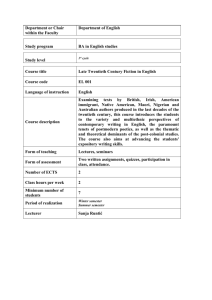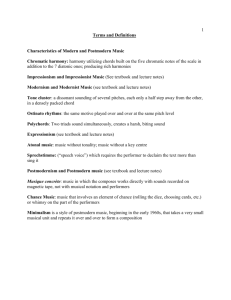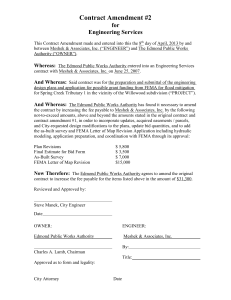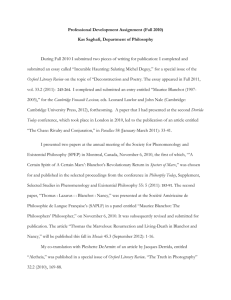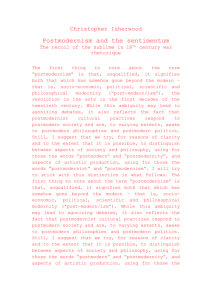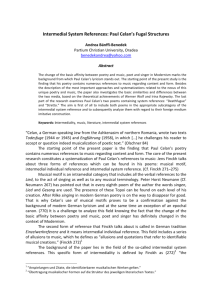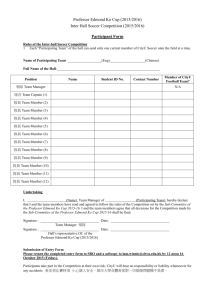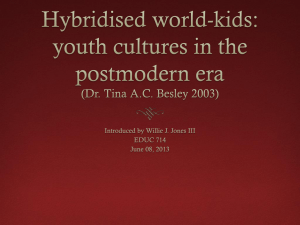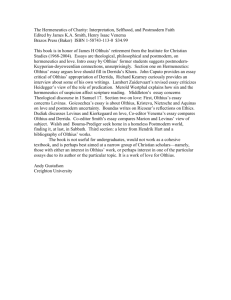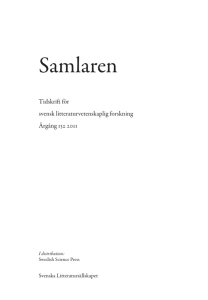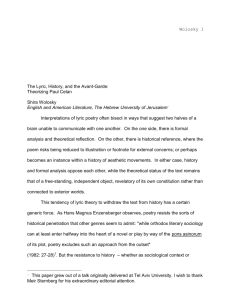The Writing of Silence: Edmond Jabès and Paul Celan (Spring 2002)
advertisement
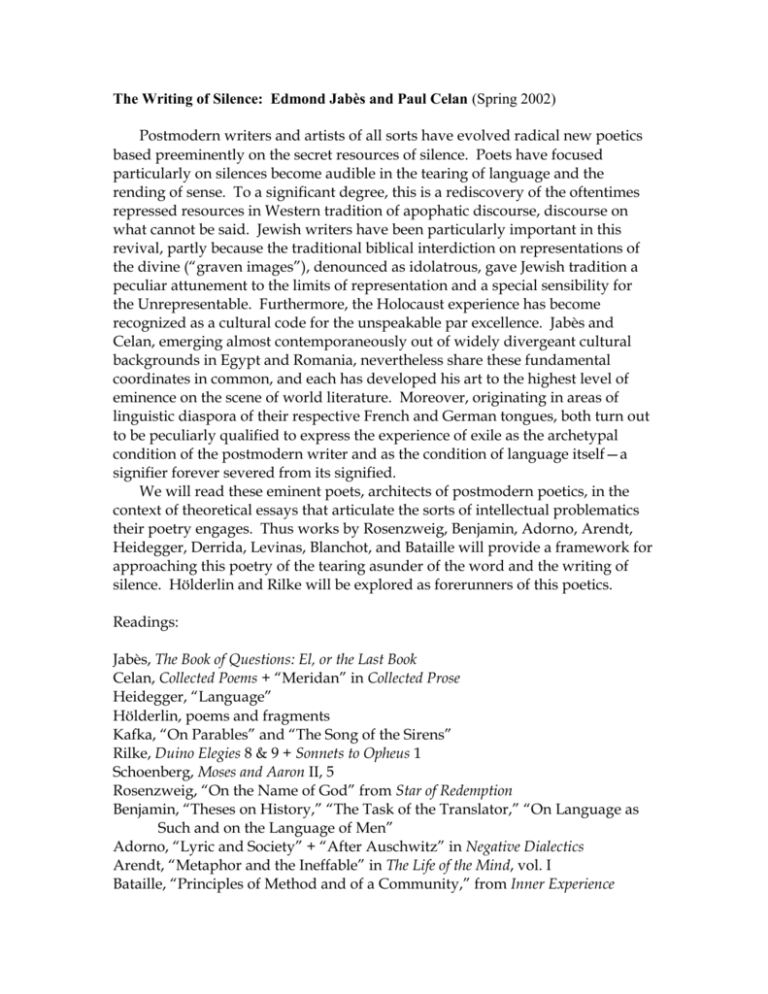
The Writing of Silence: Edmond Jabès and Paul Celan (Spring 2002) Postmodern writers and artists of all sorts have evolved radical new poetics based preeminently on the secret resources of silence. Poets have focused particularly on silences become audible in the tearing of language and the rending of sense. To a significant degree, this is a rediscovery of the oftentimes repressed resources in Western tradition of apophatic discourse, discourse on what cannot be said. Jewish writers have been particularly important in this revival, partly because the traditional biblical interdiction on representations of the divine (“graven images”), denounced as idolatrous, gave Jewish tradition a peculiar attunement to the limits of representation and a special sensibility for the Unrepresentable. Furthermore, the Holocaust experience has become recognized as a cultural code for the unspeakable par excellence. Jabès and Celan, emerging almost contemporaneously out of widely divergeant cultural backgrounds in Egypt and Romania, nevertheless share these fundamental coordinates in common, and each has developed his art to the highest level of eminence on the scene of world literature. Moreover, originating in areas of linguistic diaspora of their respective French and German tongues, both turn out to be peculiarly qualified to express the experience of exile as the archetypal condition of the postmodern writer and as the condition of language itself—a signifier forever severed from its signified. We will read these eminent poets, architects of postmodern poetics, in the context of theoretical essays that articulate the sorts of intellectual problematics their poetry engages. Thus works by Rosenzweig, Benjamin, Adorno, Arendt, Heidegger, Derrida, Levinas, Blanchot, and Bataille will provide a framework for approaching this poetry of the tearing asunder of the word and the writing of silence. Hölderlin and Rilke will be explored as forerunners of this poetics. Readings: Jabès, The Book of Questions: El, or the Last Book Celan, Collected Poems + “Meridan” in Collected Prose Heidegger, “Language” Hölderlin, poems and fragments Kafka, “On Parables” and “The Song of the Sirens” Rilke, Duino Elegies 8 & 9 + Sonnets to Opheus 1 Schoenberg, Moses and Aaron II, 5 Rosenzweig, “On the Name of God” from Star of Redemption Benjamin, “Theses on History,” “The Task of the Translator,” “On Language as Such and on the Language of Men” Adorno, “Lyric and Society” + “After Auschwitz” in Negative Dialectics Arendt, “Metaphor and the Ineffable” in The Life of the Mind, vol. I Bataille, “Principles of Method and of a Community,” from Inner Experience Blanchot, “On Being Jewish,” in The Infinite Conversation Derrida, “Edmond Jabès and the Question of the Book” (also Shibboleth) Levinas, “Paul Celan” and “Edmond Jabès” in Proper Names + “Saying and Said” from Otherwise than Being Beckett, The Unnameable (end) + Texts for Nothing #8 Wittgenstein, “Lecture on Ethics” + Tractatus 6.4 – 7
